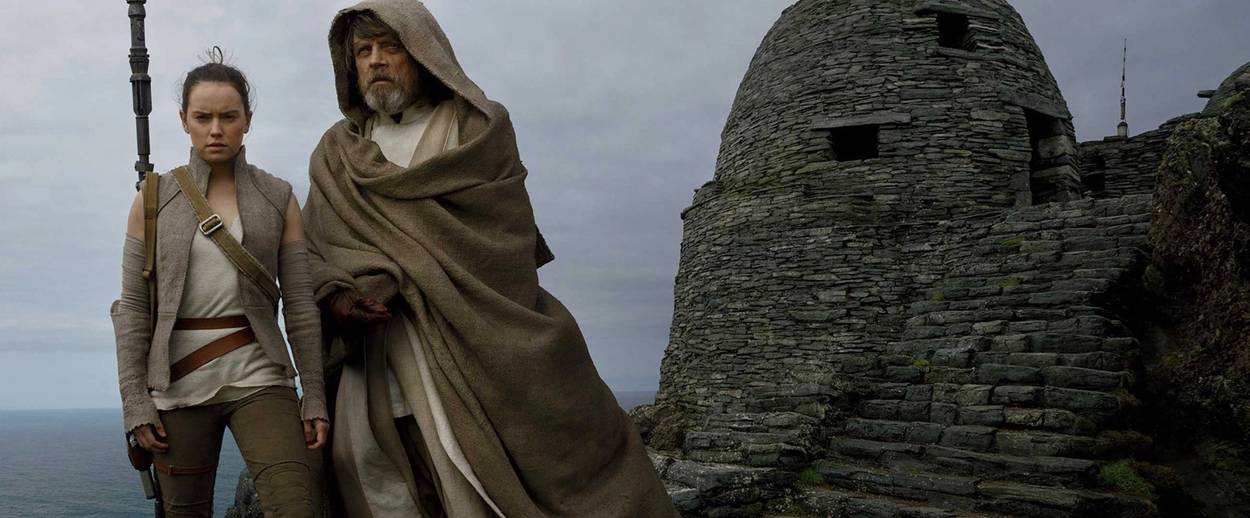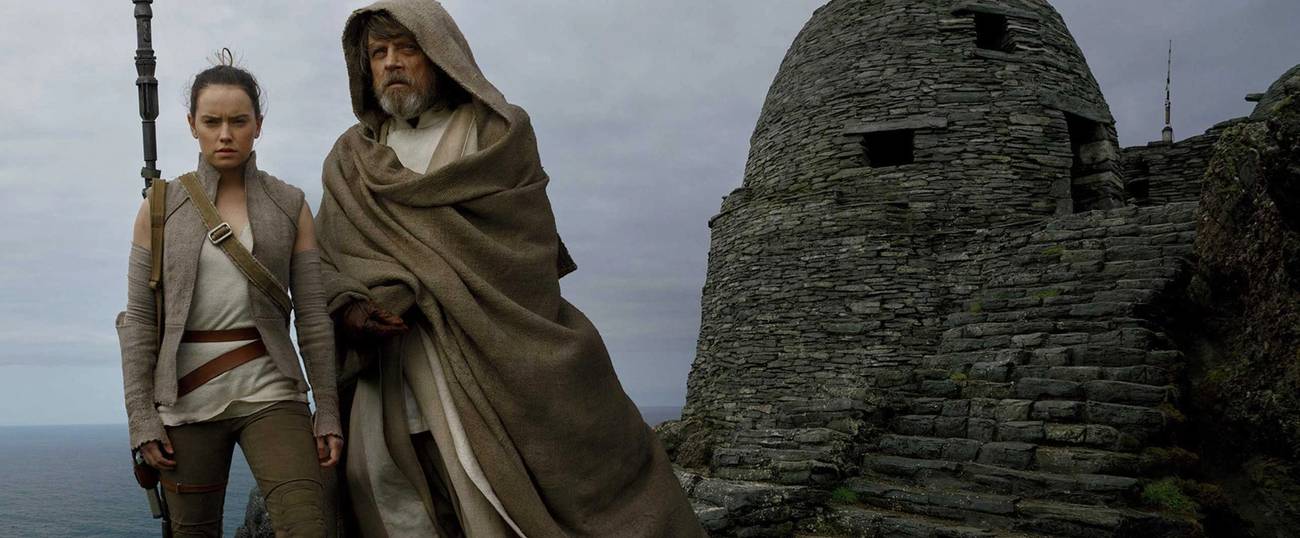Reform Jediism
The Last Jedi, the story of a community that abandons its religion for an ephemeral universalist creed, can feel like a documentary about American Jews




At this point, attempting a critical review of the Star Wars franchise feels a lot like buzzing about in an X-wing and trying to blow up a Starkiller Base: You might succeed, but the imperial galactic force is likely to recover without too many scratches and return unharmed for the next installment. But watching The Last Jedi, the eighth episode in the saga, this weekend, I felt a torrent of anger I haven’t known since gazing at the calamity that was Jar-Jar Binks. That’s because the movie, while otherwise engaging and enjoyable, introduced a radical new take on the Jedi religion. Call it Reform Jediism.
Who is a Jedi? The question has been answered several times in divergent ways in the different Star Wars movies. According to one school of thought, Jedis are born, not made: They are the chosen ones whose blood is carbonated by midi-chlorians, magical microparticles that enable them to do things like wave their hands ever so slightly and convince you that these were not the droids you were looking for. Other explanations argue that the Force is a kabbalistic energy of creation, everywhere in existence but accessible only to those orthodox souls who are committed to studying its secrets and unlocking its mysteries. This being 2017, however, the latest Star Wars movie posits a different approach altogether: The Force is everywhere and for everyone, no study or observance necessary.
It wouldn’t be much of a spoiler to say that this new Jedi denomination comes to us courtesy of Luke Skywalker, whose haggard face, adorned with a rabbinic beard, you might’ve seen on every surface of the Earth that supports advertising. When Rey, the franchise’s current heroine, comes to Luke for guidance, the graying master brushes her off. The ancient sacred Jedi texts, we are told later in the film (though by whom will remain a surprise until you make your way to the multiplex), are boring rubbish, and the ancient Jedi practices—the very ones Luke himself had spent so much of the earlier films trying to master—are a waste of time. To be a Jedi, according to Reb Skywalker Ba’al HaNes, you only need to feel like a Jedi, because the old religion wasn’t about the ethics of the fathers but about tikkun olam, which everyone can achieve just by being, you know, a good person. Toss in a few bagels, and you can say that Jediism, really, isn’t a religion but a culture or something.
This bit of theological inanity also makes the movie sag. Instead of fighting the malicious First Order with skill and determination, the rebels—they frequently remind you that the correct nomenclature for their group is the #resistance—are busy bickering about the root causes of evil. Like some galactic fringe group—call them J(edi) Street, or, better yet, Jedi Voice for Peace—these would-be warriors worry that the homicidal maniacs who had just murdered everyone they love in cold blood may not be, you know, bad, but simply misunderstood or even oppressed. You won’t believe what happens next.
For American Jewish audiences, then, The Last Jedi can feel almost like a documentary, a sordid story about a small community eager to trade in the old and onerous traditions for the glittery and airy creed of universalist kumbaya that, like so much sound and fury, signifies nothing.
In part, it’s a question of evil. The new movie’s villain is a laughable lump of CGI and malice, with a name—Supreme Leader Snoke—that may as well belong to a second-rate Pokemon. Who is this Snoke, and what does he want? Why all the murder and the hate? And how did he get the gnarly sickle-shaped craterous scar on his forehead? We’re never told, because, frankly, it doesn’t matter: Snoke is here merely to embody evil in the abstract, like the caped, mustache-twirling baddies who once tied distressed damsels to the train tracks. He has no cause or depth or soul: Those are all reserved for the movie’s other bad guy, Kylo Ren, whose Zayde, you may recall, was one Darth Vader. Much of the movie’s drama stems from debating whether or not Ren, last seen murdering his own father, may yet be redeemed, which only makes moral sense if you believe that there are moderates among the dark Sith lords with whom you can negotiate some sort of a deal that would somehow prevent them from accumulating their weapons of mass destruction. In this morally sophomoric cinematic universe, where not even the genocidal Ren is exempt from relativism’s muddled misjudgment, it’s no wonder that the ultimate evil is a lanky caricature that hisses generic bad guy catchphrases without rhyme or reason. Anything else would require coming to terms with the harsh reality of having real enemies that wish you real ill and that ought to meet with real and swift and painful deaths.
Reform Jediism, of course, is capable of nothing so steely and resolved. Unlike that other cinematic hero of the moment, Gary Oldman’s superb Churchill in The Darkest Hour, the latest batch of Star Wars heroes shy away from the grim realities of war, instead trying to constantly sacrifice themselves for what they believe is some ephemeral and tender purity. At one point late in the movie, one character sabotages a crucial military strike and then, beaming beatifically, delivers a starry-eyed speech about how violence is never the answer and how only love can ever prevail. The imperial guys with the AT-ATs, needless to say, have a very different point of view.
But it’s hard to blame these sunken soldiers for bungling the fight. Instead of a concrete belief, a solid faith with specific rules and concrete decrees, they cling to a feeling, sweet and fleeting, that people are good and worth saving. It’s a noble idea, but unless it is rooted in the hard earth of nation or religion, it tends to melt into air. Untutored in the old ways of the Force, the young rebels have nothing to guide them in their struggle except their passions and their pride, both of which lead to disaster.
The old ways and the old texts still do matter—both in the here and now and in a galaxy far, far away.
Liel Leibovitz is editor-at-large for Tablet Magazine and a host of its weekly culture podcast Unorthodox and daily Talmud podcast Take One. He is the editor of Zionism: The Tablet Guide.